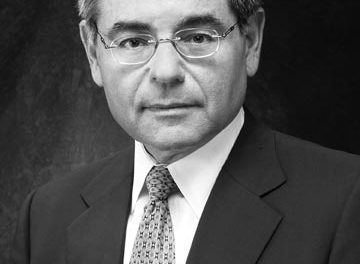About Federal Criminal Trials

by Mark Horwitz
The Sixth amendment to the United States Constitution provides that in all criminal prosecutions the accused has the right to a trial by an impartial jury. The Founding Fathers recognized citizens must be protected from abusive prosecutions that are motivated by political considerations or based upon false or insufficient facts. The right to trial by jury places citizens, serving as jurors, between the accused and the government.
Prosecutors and investigators are not always right in deciding to prosecute a case. Mistakes can be made by investigators due to inexperience, failure to conduct an impartial investigation, intentional falsehoods by the investigator in reporting or gathering evidence, and reliance upon cooperators and informants who are motivated to seek favorable treatment and reduce their prison sentence. These and other reasons can result in innocent individuals being convicted and sentenced to long terms in federal prison.
Many jurors have beliefs as to procedures concerning investigations, disclosures to the defendant and other matters that impact a defendant’s right to a fair trial. Common perceptions of jurors include: the government provides the defendant a list of government witnesses prior to trial and the defense lawyer has an opportunity to take a deposition of the government witnesses so as to require the witnesses to answer questions under oath before the trial.
What jurors are not told is that the government has no legal obligation to disclose the witnesses that it intends to call to testify. The jury is also not aware of the fact that there is no legal obligation on the government to provide the defense with written statements of the witness until after the witness testifies on direct examination at trial. Some judges require that the government provide the names of the government witnesses and any written or sworn statements of the witnesses shortly before the trial starts.
Most federal law enforcement agencies do not obtain written or sworn statements from potential witnesses. In addition, most federal agents do not record statements obtained from witnesses during the investigation. In fact, federal agents go out of their way not to obtain a written or sworn statement of the pertinent facts from the witnesses interviewed during the investigation. It is interesting that in the United Kingdom the prosecution must present the defense with a sworn statement from every prosecution witness concerning the facts to which the witness will testify about. No such document is required and usually is not created by the federal investigators. The federal investigators will prepare a written memorandum for the prosecutor but will not show that memorandum to the witness to determine whether the agent’s memorandum of interview is accurate. If the memorandum was shown to the witness, it would then become the witness’ statement and subject to being turned over to the defense after the witness testifies on direct examination by the prosecutor.
When a civil case is tried in federal court, the parties exchange witness lists and have the right to take depositions of witnesses prior to trial so as to find out what the witness has to say under oath about the case. In civil and criminal cases in Florida state courts, the parties exchange witness lists and have the right to take witness depositions prior to trial. Many jurors would be surprised that in civil cases where people are suing over money, there are more rights for a defendant than in a criminal case in federal court where a defendant can face years and decades in prison. Many jurors would also be shocked at the long length of prison sentences imposed for even minor crimes.
Jurors may consider the quality, motivation, thoroughness and accuracy of the prosecution and agents. These factors alone may raise a reasonable doubt and result in a verdict of Not Guilty.




